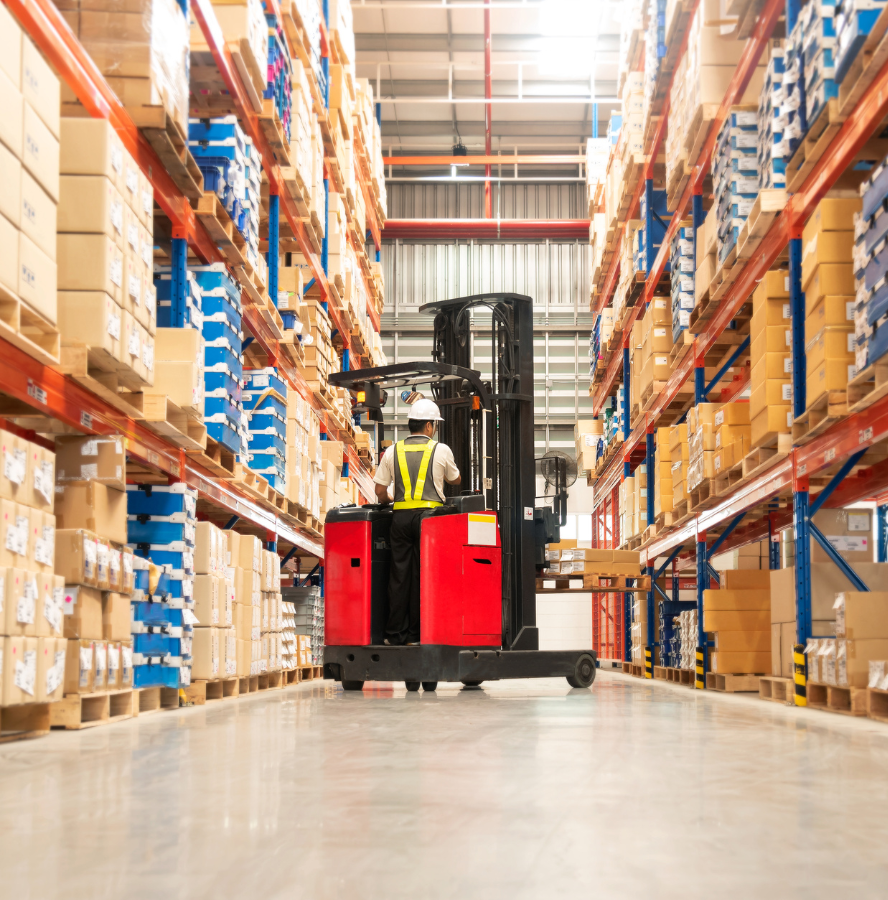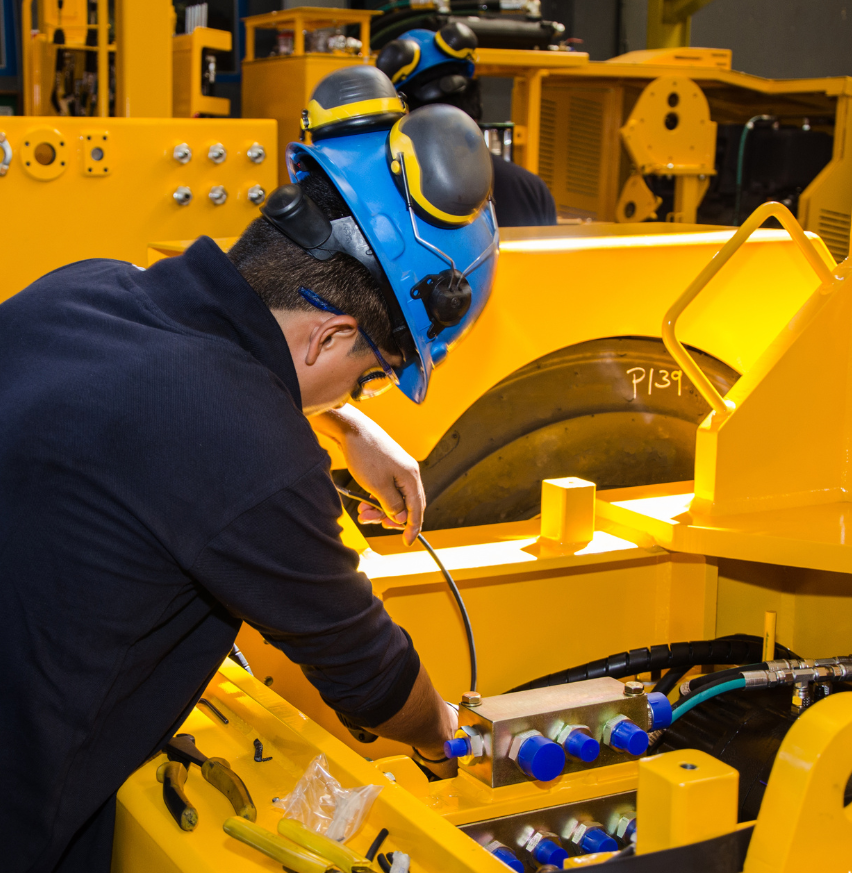February 6, 2025
Rekindle your love of Salesforce
Have You Fallen Out of Love with Salesforce? Here’s How to Bring Back the Spark Like any long-term relationship, your journey with Salesforce started with...
Learn More
Picture this: A CAT dealership is gearing up for a busy day. A customer, a long-time partner of the dealership, walks in looking to purchase a piece of heavy equipment. The sales rep, familiar with the customer, begins the sale by reviewing past interactions in Salesforce, discussing rental agreements, and finalizing the equipment specifications.
But when it comes time to complete the sale, things fall apart.
The rep needs to switch to an outdated, disconnected order management system to process the transaction. This separate system has no record of the customer’s history, so the rep needs to re-enter customer details manually. While processing the payment, the system freezes. The rep can’t confirm the payment, inventory isn’t updated, and now they have to run to the back office to verify if stock is available. The customer, who was initially excited about the purchase, is now frustrated with the delays.
This scenario is all too common in equipment dealerships that lack an integrated POS system. Sales reps rely on disconnected systems that cause delays, errors, and customer dissatisfaction. In an industry where precision and efficiency are critical, these pain points can cost dealerships valuable time, sales, and customer loyalty.
But what if the entire sales process—from customer relationship management to payment processing—could be handled in a single system? A Salesforce-native POS solution can eliminate these issues by integrating every step of the sales process into one unified platform.
Here’s how an integrated solution can solve some of the most common pain points dealerships face at the point of sale.
In equipment sales, processing payments quickly and accurately is essential. Manual errors—whether from outdated systems or human mistakes—can slow down transactions, frustrate customers, and complicate accounting. An integrated POS system within Salesforce automates payment processes, ensuring that sales data is captured correctly, payments are processed efficiently, and errors are minimized. Whether your dealership handles in-person, online, or phone sales, having a reliable, Salesforce-native POS system in place prevents these disruptions.
Equipment dealerships often face technical issues with their POS systems, from software freezes to hardware malfunctions. With a Salesforce-native POS system, these concerns are minimized. The system is cloud-based, offering consistent performance and even working offline when internet connectivity is an issue. Your dealership can continue to process sales and update inventory, even if a technical glitch occurs—ensuring that business doesn’t grind to a halt when something goes wrong.
Knowing your customer is critical in the equipment dealership world. POS systems integrated with Salesforce allow your team to capture and store important customer data, such as order history, preferences, and contact information, in real-time. With all customer interactions consolidated in Salesforce, your team can provide personalized service, track purchasing patterns, and offer customized solutions—whether it’s for a large equipment purchase, a rental, or a service request.
For example, the next time a customer calls in, you’ll know exactly what equipment they’ve rented or purchased in the past, allowing you to make informed recommendations or offer timely service reminders.
In today’s marketplace, customers expect more than just cash and credit card options at checkout. An integrated POS system enables your dealership to offer multiple payment options, including mobile payments, financing, and even split payments across different methods. By keeping everything synced in Salesforce, your sales team can offer flexible payment options without having to switch between systems, making the checkout process faster and more convenient for both staff and customers.
Running an equipment dealership without real-time inventory tracking can result in stockouts, over-ordering, or missed sales opportunities. With a Salesforce-native POS system, inventory levels are automatically updated after each transaction, keeping your stock data accurate and up to date. This visibility allows you to set automatic reorder points, ensuring that you never run out of high-demand items and that your customers always have access to the equipment they need.
Additionally, Salesforce integration allows for better warehouse management, helping you track inventory across multiple locations and ensure timely restocking.
Equipment dealerships increasingly operate in an omnichannel environment, with customers interacting through a variety of channels—whether online, over the phone, or in-store. A Salesforce-integrated POS system ensures that all transactions are captured and processed consistently across channels. Your sales team can view a customer’s complete purchase history and interaction data no matter where the sale occurred, allowing for a smoother, more personalized shopping experience.
Labor shortages are a growing concern for many dealerships, but a modern POS system can help alleviate some of the strain. By automating tasks like payment processing, inventory tracking, and customer data entry, your team can operate more efficiently with fewer resources. This automation allows your staff to focus on high-value activities, like customer service and sales, rather than getting bogged down in manual processes.
While digital payments are on the rise, many dealerships still deal with traditional cash transactions. Handling cash brings its own set of challenges, from making change to verifying currency authenticity. A modern POS system can streamline cash handling by automating the process, reducing errors, and integrating cash sales data directly into Salesforce. This means fewer headaches for your team and more accurate financial records for your business.
Integrating a POS system with Salesforce offers your dealership a single, connected view of customers, products, prices, and orders. This connectivity allows for a smoother, more comprehensive sales process, helping you provide better service to your customers and manage your dealership more effectively.
Here’s what you can expect with an integrated POS system:
Some key features of a Salesforce-native POS system include:
For CAT dealerships looking to enhance their sales operations, integrating a POS system with Salesforce can transform how you do business. By addressing common pain points related to sales, inventory, and customer management, an integrated POS system simplifies daily operations and ensures your dealership runs more efficiently. Whether it’s minimizing payment errors, optimizing inventory levels, or providing a consistent omnichannel experience, a Salesforce-native POS solution allows you to focus on what matters most—building strong relationships with your customers and growing your business.
Endiem partners with Eposly, the only 100% Salesforce native POS solution, in order to bring our customers a best in class checkout experience.
If you are ready to transform your dealership’s sales processes and improve operational efficiency? Let’s talk today. Schedule a 15 minute intro call now with Endiem and let’s get started.
.png?crop=21x0x95x100&resize=5920x6065)
Have You Fallen Out of Love with Salesforce? Here’s How to Bring Back the Spark Like any long-term relationship, your journey with Salesforce started with...
Learn More
Checking Out AI? How Smart POS Systems Are Uncovering Hidden Revenue Streams POS systems have long been the backbone of retail and service industries. But...
Learn More
While Salesforce's latest AI offering Agentforce is a hot topic, many dealerships still wonder how it can make a tangible difference in their operations. The great news...
Learn More
Let us know your Salesforce project needs and we’ll set up a time to chat about timelines, budgets, and next steps.
Contact Us